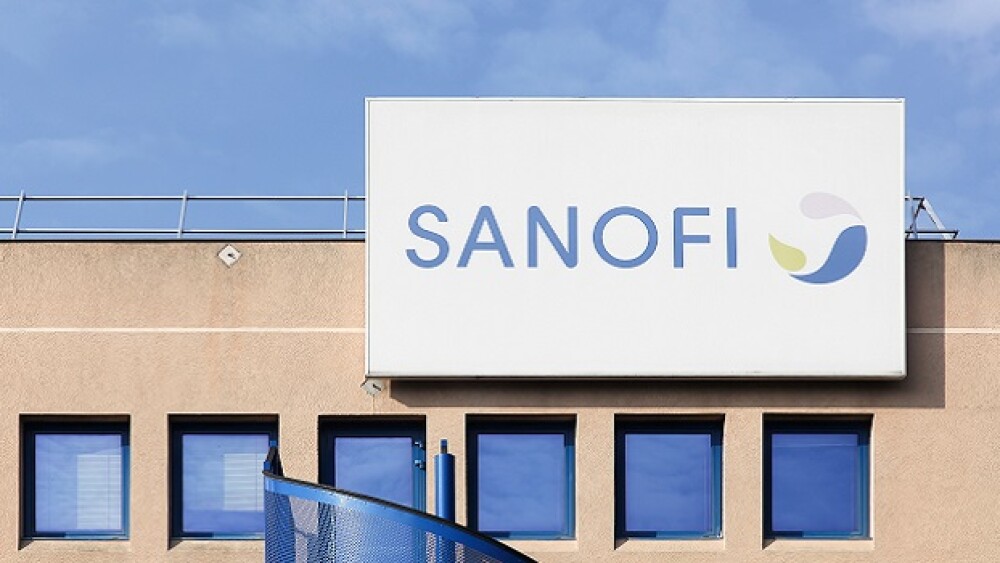The French pharma drops another BTK inhibitor program from Principia and an anti-TNFa from Ablynx.
Pictured: Blue and white Sanofi sign on building/Ricochet64/Adobe Stock
Sanofi is the latest company to do some spring cleaning of its pipeline. Thursday morning, the pharma announced it will discontinue two acquired programs in its Q1 update.
Atuzabrutinib, a topical BTKi from Principia, is being dropped due to “efficacy and sub-optimal pharmacokinetics” after results from a study in patients with mild to moderate atopic dermatitis. The company has also dropped SAR444419, an anti-TNFa/IL-6 nanobody acquired from Ablynx, after a benefit/risk assessment of a study in healthy subjects.
Since its $3.68 billion buyout of Principia Biopharma and its BTK inhibitors in 2020, Sanofi has experienced a few flops in the space.
In February, the company stopped a Phase III study of tolebrutinib, another BTKi from Principia in myasthenia gravis (MG). The decision to drop the candidate in MG was primarily driven by a crowd of solid competition.
Tolebrutinib is still in Phase II and III trials for different forms of multiple sclerosis (MS), although the FDA placed a partial clinical hold in June 2022. While the partial hold is still in place, Dietmar Berger, Sanofi’s temporary global head of R&D, clarified in the investor call that it only affects recruitment for one of the studies and only in the U.S. Three out of four of the MS trials for the treatment are fully recruited.
Berger, Sanofi’s chief medical officer and global head of development, stepped into the R&D role when John Reed departed earlier in February.
In 2018, Sanofi beat out Novo Nordisk to scoop up Belgium-based Ablynx for $4.85 billion.
The cuts of these acquired assets are a continuation from last fall when Sanofi had to drop its IL-2 candidate, purchased in its $2.5 billion buy of Synthorx.
Additionally, the biopharma is discontinuing programs for two of its approved drugs: Dupixent in Allergic Fungal Rhinosinusitis and Chronic Rhinosinusitis without Nasal Polyps and a subcutaneous formulation of Sarclisa for adults with Warm Autoimmune Hemolytic Anemia.
Sanofi is one of several pharma companies trimming the fat after Q1. Novartis announced a strategy to focus on its core therapeutic areas, culling 10% of its pipeline.
Similarly, under its new leadership, Biogen is reprioritizing its pipeline by cutting back preclinical gene therapy spending, dropping late-stage stroke assets and discontinuing development for its investigational treatment for spinocerebellar ataxia type 3.
Kate Goodwin is a freelance life science writer based in Des Moines, Iowa. She can be reached at kate.goodwin@biospace.com and on LinkedIn.






